Climate change: overweight Scotland in need of repair
- Published
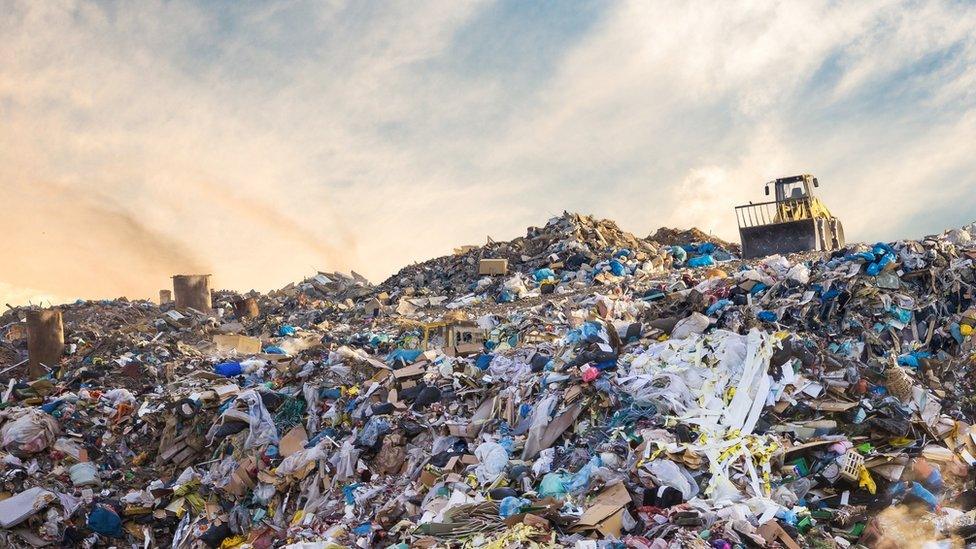
A new way of measuring Scotland's environmental impact includes its use of resources, domestic and imported, which reaches more than double the level seen as sustainable.
Recycling is seen as one of the less efficient ways of solving the problem, with pressure growing for business and households to re-use, repair and re-manufacture.
A move from ownership to leasing of goods, from phones to clothes and cars, is already under way, and could be part of using fewer resources, by deploying them more efficiently.
"Do we really need that?"
It is the question guaranteed to put a dampener on a family shopping trip, occasionally contributing to marital tensions.
It's also a question now being asked by the Scottish government agency Zero Waste Scotland, intruding on the free-born right of every Scot to buy and own more stuff.
Globalisation has driven this faster. Lower-cost manufacturing in distant lands, using high-quality processes, with ever more flexible plastic moulding, electronic processing power, and highly efficient supply chain logistics have brought much more stuff into the range of household budgets.
Online shopping makes it easier still to click and have another bit of kit delivered, sometimes within hours, usually with far too much unnecessary packaging.
The impact is astonishing when you add it all up and that is what Zero Waste Scotland has been doing in a new report that shows the nation weighs in at more than twice the sustainable level.
Northern tonnage
The concept takes a bit of getting your head around. It adds up all the raw materials we produce in Scotland. Oil features prominently in that accounting, as does timber and food.
For much of our industry and our household purchases, we import raw materials and part-finished products such as metals. The UK imports around half its food.
Add together all the domestic raw materials with imported materials, and then subtract the oil, food and other products that are exported. Those can be accounted for in other countries' Material Flow Accounts.
The result in 2017 looks like 18.4 tonnes per average Scot - four tonnes more than the European average, and more than double the sustainable level for Europe.
Northerly countries have higher figures, probably because they need better insulation in buildings and more energy to heat them, plus more layers of clothing. That all adds up.
Corrosive contacts
So what is to be done with that number? If we assume it has to come down, the first proposal is to buy less stuff in the first place, sometimes by extending the life of what we already own.
To do that, we need to get more used to repairing that toaster or kettle that may have a fuse blown or a dodgy connection.
The repair cafe movement, running to 2,000 registered in its worldwide network, includes one I've visited in Glasgow's Strathbungo.
Call in and self-confessed 'tinkerer' Jon Dawes, the co-ordinator of around 20 other repairers, will see what they can do, over a cuppa and cake.
The success rate is around 80%. Corroded batteries and shonky contacts are easily found, cleaned and soldered. The idea is not only to give you back a functioning product, but to give you the confidence to have a go yourself the next time something breaks down.
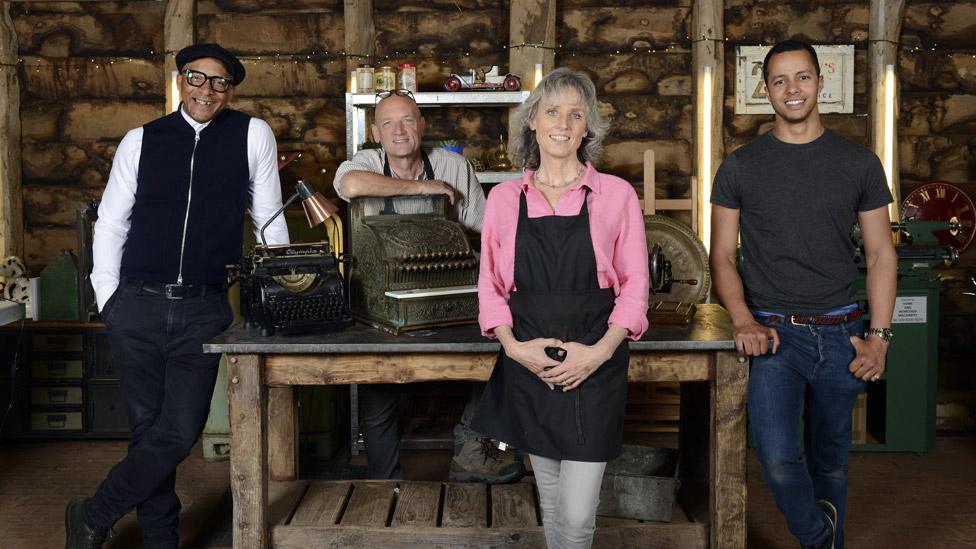
BBC One's The Repair Shop has been a ratings hit as real-life repair shops become more common across the country
A similar Glasgow project has just received £550,000 from the Scottish government to scale up its activities.
Refurbishment of products can mean taking one item and turning it into something completely different. Gin bottles can make for pleasing lamps.
Remanufacture is a more advanced form of giving new life to ageing products, where the steel of a washing machine shows no sign of wear and tear, but the engine might have to be replaced. It stops short of throwing the whole lot into recycling and melting it down, using a lot of energy.
That can require designers and manufacturers to create their products from modules of plug-in parts. To many manufacturers, that means extra cost, so it can require regulatory intervention to ensure it happens.
Either impose design requirements at the front end, or force manufacturers to pay for disposal at the back end.
Generation rent
Governments can also have an impact by the way they procure goods, points out Iain Gulland, chief executive of Zero Waste Scotland. With a multi-billion pound annual budget for capital projects, the buildings, roads and bridges it constructs can lead the way in re-using materials.
Governments buy smaller items as well, from NHS and police uniforms to office printers. Requiring suppliers to design and manufacture them with lower materials impact, and higher chances of re-use and re-manufacture can create business opportunities. Do it often enough, and the price should come down.
This could feed into an economy where we rent far more and buy services rather than buying things to own. Gulland cites figures for clothes, worth £4,000 sitting in the average Scottish home, more than third of which are not used in the average year (a much higher share likely in the past year of Covid constraints and home working).
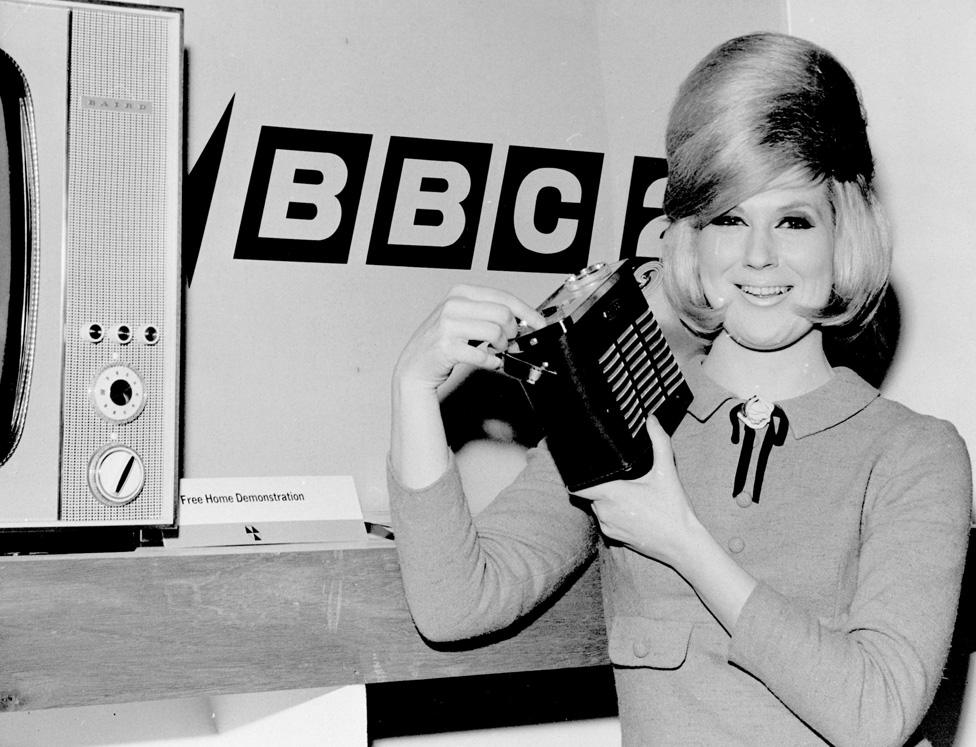
Dusty Springfield at the Ideal Home Exhibition, Olympia, being presented with a Baird radio by Radio Rentals, which later moved into renting out TVs and tape recorders
Going beyond kilt hire for a wedding, what if you hire more of those clothes for rare use? The model is being developed. John Lewis is one of the retailers trialling the rental of home furniture. The average DIY drill is used for only 20 minutes, so workshops of neighbourhood tools for rent make more sense.
The business model is not that new. Televisions used to be rented through companies such as Radio Rentals and Granada, and I recall when phones had to be rented from the Post Office.
Those days are long gone, but now we routinely lease cars and phones. The leasing company takes them back, and is better able than us to re-purpose them, by finding second hand users, remanufacturing and recycling options.
More efficient use of resources is to rent your car from a car club, meaning that lump of metal, plastic, electronics and rubber tyres can be more efficiently used, reducing the pressure to use road space for parking.
Broadband bulbs
Business-to-business contracts are further down that road. The office printer and photocopier has become a much more efficient operation through rental contracts, regular servicing by people who know what they're doing, and replacement when the kit becomes unreliable and inefficient. That now goes for rental of laptops and desktop computers.
It even goes for lighting workplaces. That is an increasingly complex science, and could become moreso if PureLifi in Edinburgh succeeds in developing its broadband through light bulbs.
Instead of a new building having lighting as part of the capital budget, companies can now lease lighting equipment, with servicing and replacement when necessary.

A new tenant to the commercial space may have different lighting requirements so it should contract for them.
All this upends the notion of prosperity being measured by accumulation. There are signs that a younger generation is on to this faster than older ones. Music collections are no longer defined by metres of shelved hardware, but by access to streamed content, letting people travel lighter.
That generation is also more likely to rent property than its elders - partly through the cost, and despite government inducements to get on the property ladder. But it is also because millennials tend to travel lighter.
They don't do it because they've been looking at the Material Flow Accounts, but because the technology makes it possible and financially it can make sense.
The environmental benefits may be the least of their incentives, but they are there all the same: we may be already heading down a less weighty resource road.
Related topics
- Published22 June 2021
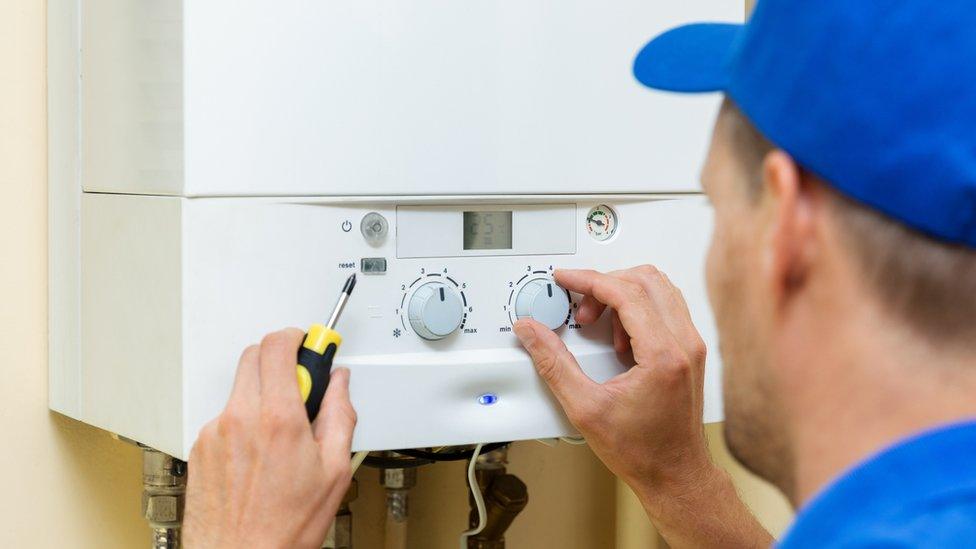
- Published15 June 2021
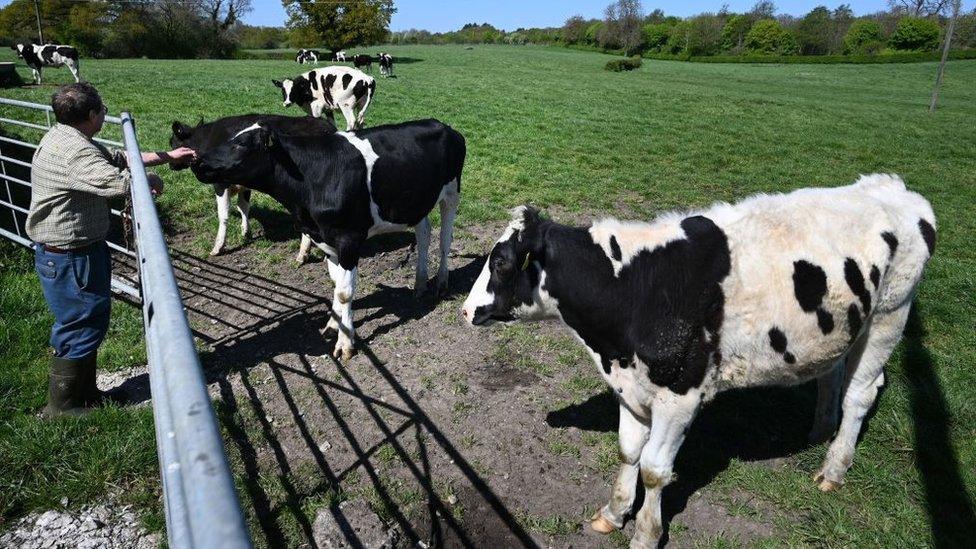
- Published16 June 2021
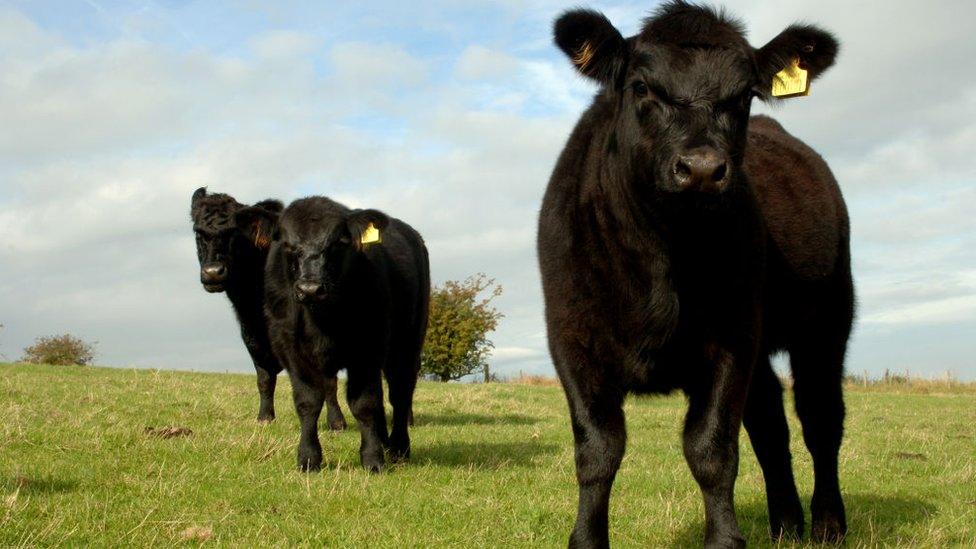
- Published17 June 2021

